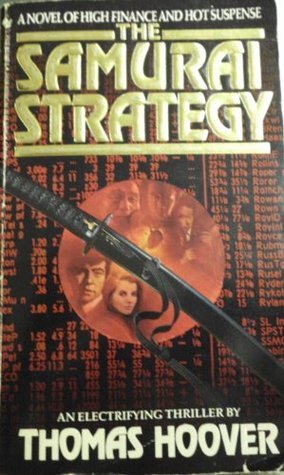Samurai have a deep instilled philosophy of discipline, commitment to training, and above all honor. While you won’t find too many sword wielding warriors in today’s political skirmishes, there are still many followers of this way of life. Modern day Samurai choose their own battlefields. Matsuo Noda studied the terrain, he planned his strategy carefully, and for his battleground he chose Wall Street.
I’ve often stated that one reason that I like to read classic science fiction is to compare the predicted technology with what we do have today. Though this book was written only 25 years ago, the same theory holds true. America’s economy is in the toilet. The Federal Reserve is printing money with nothing to back it. This leads to inflation, which is not the fact that the things we buy are actually worth more, but that the dollar is worth so little. The only thing that America still manufactures in high quantity is people, and yet we still import those as well. Don’t get me wrong, I am not against immigrants, I just don’t understand why people are still coming to America when there are so few jobs available now.
This novel brings into focus what has slowly and subtly happened in this country. Corporations and their big CEOs are receiving high salaries and tons of toys – company owned limos, planes, boats, vacation homes, etc – instead of reinvesting company profits to update and improve products as available technology becomes more advanced. They end up with an item on the market which was incredible in its heydey but is now obsolete with newer and better versions being sold by competitors.
It is actually a bit scary just how closely author Thomas Hoover’s predictions in this book have become our reality. In this story a Japanese businessman takes the reins, begins buying up American companies after the stock market hits an all time low – which he instigated, jockeys into position for hostile takeovers if the administrators won’t roll over and play nice, and prepares to restructure the companies to make them viable and competitive again. But is his strategy really meant to benefit the American public or does he have a hidden agenda that will pull the rug out from under the American economy that already has the structural strength of a house of cards during hurricane winds?

